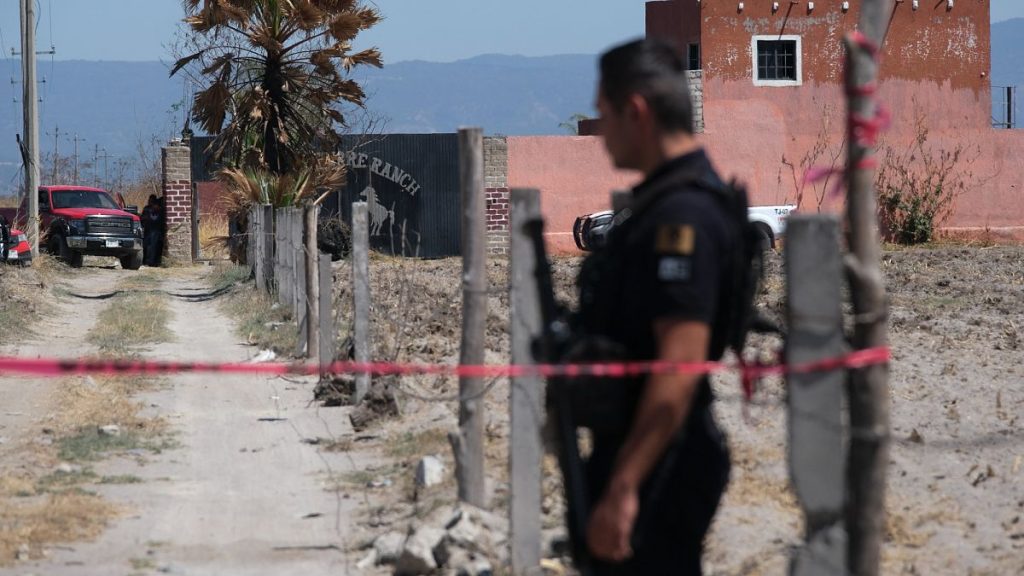In a shocking act of violence, the mayor of San Mateo Piñas, Lilia Gema García Soto, was shot dead on Sunday morning in Oaxaca, Mexico. Her assassination marks a continuation of the troubling trend of violence against elected officials in the country, highlighting the dangers faced by those in public office. This incident is the second such killing of a mayor in Oaxaca this year, intensifying concerns over political safety amid rising rates of violent crime fueled by drug cartels.
| Article Subheadings |
|---|
| 1) Details of the Attack on the Mayor |
| 2) Response from Officials |
| 3) Context of Violence against Public Officials |
| 4) The Broader Trends in Political Violence in Mexico |
| 5) Local and National Reactions |
Details of the Attack on the Mayor
The assassination of Lilia Gema García Soto occurred early on Sunday, June 16, 2025, while she was meeting with local official Eli García Ramírez at the city hall in San Mateo Piñas. Eyewitness accounts indicate that armed assailants, arriving on motorcycles, stormed the hall and opened fire without warning. This brazen attack not only resulted in the fatal shooting of García Soto but also left two municipal police officers injured in the chaos of the assault. The immediate aftermath was one of panic and alarm, reflecting the high-stakes, volatile environment in which public officials must operate in Mexico.
Response from Officials
Following the murders, the governance structure in Oaxaca swiftly mobilized to condemn the violence and assure the public of a thorough investigation. Salomón Jara Cruz, the governor of Oaxaca, expressed his outrage over the incident, stating,
“There can be no impunity for this incident. We will collaborate with the State Attorney General’s Office to clarify the facts and deliver justice. My condolences to her family.”
This statement underscored a commitment to take serious measures against the perpetrators while also highlighting the emotional impact of the event on García Soto’s family and the broader community.
Context of Violence against Public Officials
The killing of García Soto is not an isolated incident but rather reflects a burgeoning epidemic of violence against elected officials in Mexico. Just a month prior, the state of Oaxaca witnessed the assassination of another mayor, Mario Hernández García, indicating a perilous environment for those in political office. The danger is exacerbated by the organized crime landscape in Mexico, where cartels often target public figures to exert control and instill fear within communities. In recent years, reports have indicated that at least 30 candidates for municipal or state positions were killed in the previous election cycle alone, making the nation one of the most dangerous places for political activity.
The Broader Trends in Political Violence in Mexico
Amidst a backdrop of rising murder rates, the assassination of public officials can be traced to a combination of political corruption, narcotrafficking, and systemic impunity that allows such acts to occur with little fear of retribution. According to a 2023 UN report on homicide, Mexico boasts one of the highest murder rates globally, primarily attributed to violence from drug cartels. This violence extends beyond just elected officials, impacting various sectors of society and eroding trust in governmental structures. The environment of fear and intimidation created by such acts deters individuals from engaging in politics or public service, further perpetuating the cycle of violence.
Local and National Reactions
The aftermath of García Soto’s killing has sparked reactions both locally and nationally. Community members in San Mateo Piñas have mourned the loss of their mayor, remembering her commitment to the community and her collaborative approach to governance. Meanwhile, national media outlets have highlighted the tragedy as a poignant reminder of the perils faced by public officials across Mexico. The ongoing violence has elicited calls for stronger protective measures for political candidates and public officials, as well as a reevaluation of law enforcement strategies to counter the influence of organized crime.
| No. | Key Points |
|---|---|
| 1 | The mayor of San Mateo Piñas, Lilia Gema García Soto, was shot dead in a violent attack on June 16, 2025. |
| 2 | The attack was carried out by armed men who arrived on motorcycles and targeted the city hall where García Soto was holding a meeting. |
| 3 | Governor Salomón Jara Cruz condemned the incident and vowed to collaborate with law enforcement to bring the perpetrators to justice. |
| 4 | This incident marks the second assassination of a mayor in Oaxaca this year, highlighting an alarming trend of political violence. |
| 5 | The broader context demonstrates a landscape of rising crime and violence against public officials in Mexico, driven by organized crime. |
Summary
The assassination of Lilia Gema García Soto serves as a grim reminder of the risks faced by public officials in Mexico. Her death, along with recent similar attacks, underscores a pervasive culture of violence and fear that continues to threaten democratic processes across the nation. As authorities grapple with this crisis, the need for comprehensive law enforcement reform and protective measures for politicians becomes increasingly urgent in order to preserve the integrity of government and safeguard communal trust.
Frequently Asked Questions
Question: What led to the assassination of Lilia Gema García Soto?
The assassination stemmed from a violent attack by armed assailants who stormed the city hall in San Mateo Piñas, shooting her during a meeting with a local official.
Question: How has the government responded to this incident?
Governor Salomón Jara Cruz has condemned the murder and promised that the state will collaborate with law enforcement to investigate the killing and ensure justice for the victim’s family.
Question: What are the broader implications of violence against public officials in Mexico?
The rising violence against elected officials signifies a daunting challenge for democracy in Mexico, eroding public trust and deterring individuals from pursuing political office amid threats from organized crime.


